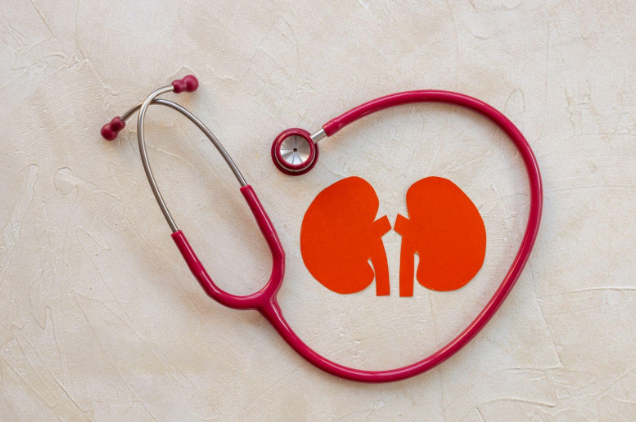Understanding the Long-Term Impact of Dialysis on Health

For individuals living with renal failure, dialysis is a helpful treatment. This is because dialysis performs the life-sustaining functions that the kidneys typically take care of. However, it’s important to be aware of how it affects your health and how you can actively manage these effects to lead a healthier life.
Staying informed and proactive will help you navigate the challenges of dialysis while prioritizing your overall well-being, so let’s dive right in.
What Is Dialysis and Why Does It Matter?
Dialysis is a medical procedure designed to remove waste products, toxins, and excess fluids from your bloodstream when your kidneys can no longer perform these functions. It’s typically recommended for patients with end-stage renal disease (ESRD) or severe chronic kidney disease (CKD).
Long-Term Physical Impacts of Dialysis
Dialysis is classified into two types: hemodialysis and peritoneal dialysis, both of which aid in the treatment of kidney failure symptoms. While dialysis helps extend life, it does not cure kidney failure, and it can have lasting impacts on multiple aspects of health.
Cardiovascular Health Risks
One of the most common long-term side effects of dialysis is cardiovascular complications. Over time, it can place strain on your heart due to fluctuations in fluid levels, blood pressure, and electrolyte balance. This increases the risk of conditions such as hypertension, arrhythmias, and heart failure.
Managing cardiovascular health in dialysis patients requires vigilant monitoring of blood pressure, fluid levels, and lipid profiles. Regular assessments to protect your heart health, including tailored dietary guidelines and medications, can help you mitigate critical issues.
Bone and Mineral Disorders
Dialysis can lead to imbalances in calcium, phosphorus, and parathyroid hormone levels, which may weaken your bones and increase the risk of fractures. This condition, known as renal osteodystrophy, requires proactive management.
Make sure you follow a renal diet rich in appropriate nutrients and take prescribed supplements, such as vitamin D or phosphate binders, which can help minimize bone-related complications.
Fatigue and Energy Levels
Many dialysis patients experience chronic fatigue due to anemia, a common condition in kidney failure. As the dialysis process itself can contribute to blood loss, your kidney might produce less EPO (erythropoietin), leading to anemia. The symptoms show up when there is reduced oxygen supply to your tissues.
Regular monitoring of hemoglobin levels and treatment with erythropoiesis-stimulating agents (ESAs) or iron supplements can significantly improve your energy levels and overall vitality.
Muscle Wasting and Malnutrition
Dialysis patients are at high risk of muscle wasting and protein-energy wasting (PEW), a condition where there is significant loss of both muscle and fat tissue. PEW is common among those undergoing long-term dialysis because the body's ability to utilize protein is compromised.
To prevent or manage this condition, you should receive individualized dietary counseling. This will make sure that you are consuming enough proteins and calories while maintaining fluid and electrolyte restrictions.
Risk of Infection
Hemodialysis is where a catheter or fistula is used to access the bloodstream, which increases the risk of bloodstream infections (sepsis) and infections. People on peritoneal dialysis, in particular, may be more vulnerable to infection, specifically peritonitis, an infection of the lining of the abdomen.
Proper hygiene, meticulous care of your catheter site, and regular consultations with your healthcare professional can reduce the likelihood of infections. Prioritizing cleanliness and seeking prompt treatment for any signs of infection are essential for maintaining your health.
Emotional and Psychological Impact
The frequency of dialysis treatments, the lifestyle changes required, and the physical limitations imposed by the disease can contribute to depression, anxiety, and social isolation. Recognizing these challenges and addressing them early can make a significant difference in your quality of life.
- Build a Support System: Connecting with family, friends, or dialysis support groups can provide emotional reassurance.
- Seek Professional Help: Therapy or counseling can help you process your feelings and develop effective coping strategies.
- Stay Active: Incorporating light physical activity into your routine can boost your mood and alleviate stress.
Nutritional Considerations for Long-Term Dialysis
Adhering to a renal-friendly diet can help you control fluid retention, minimize waste buildup, and protect your overall health. Foods high in potassium or phosphorus may need to be limited, as imbalances can affect your heart and bones. Work with a dietitian to create a personalized meal plan that meets your nutritional needs without compromising your health.
Advancements in Dialysis Technology
Dialysis technology has evolved significantly, offering patients greater flexibility, comfort, and improved outcomes. If you’re currently undergoing dialysis, staying informed about new advancements could transform your experience. Discuss your options with your healthcare provider to determine whether any of these advancements could benefit you.
- Portable Dialysis Machines: Allows for greater flexibility and independence by enabling at-home treatments.
- Nocturnal Dialysis: Provides longer and more gradual sessions while you sleep, which may reduce fatigue and improve overall well-being.
- Improved Access Devices: Advanced catheter and fistula designs aim to reduce complications and enhance comfort.
Practical Tips for Managing Long-Term Dialysis
Living with dialysis requires ongoing commitment and adaptation, but there are practical steps you can take to manage your process:
- Understand Your Treatment Plan: Learn about how dialysis works and its impact on your body. Ask your healthcare team questions to fully understand your options and stay informed about advancements in dialysis care.
- Commit to Consistency: It is important to attend all your dialysis sessions or appointments with your nephrologist. Regular treatments and monitoring are essential for maintaining your health and preventing complications.
- Track Your Symptoms: Keeping a journal of your symptoms, fluid intake, and weight changes can help your care team identify patterns and make adjustments.
- Prioritize Self-Care: Incorporate relaxation techniques, hobbies, and activities that bring you joy into your daily routine, like yoga.
With the right care, mindset, and support, you can lead a fulfilling life despite the challenges of dialysis. Our team at
Metropolitan Kidney Center provides comprehensive care tailored to your unique needs to help. Our experienced nephrologists and support staff are dedicated to helping you manage the long-term effects of dialysis on your health.
Reach out to us today!















